Maxic launches MT3102, a miniature, low power proximity sensor integrating skin recognition
-
Release Date2023-10-18
-
Page View4221 times

Due to the rising demand for social and leisure entertainment, micro-wearable devices like TWS earphones and smart glasses have entered a rapid development phase. Breakthroughs in essential techniques such as wearing detection, proximity detection, and gesture control have enabled wearable devices to be smaller, thinner, and more cost-effective. Sensors, as the crucial component in wearable devices, are encountering the technical challenge of miniaturization and low power consumption.

MT3102, launched by Maxic, is a miniature, ultra-low power digital optical proximity sensor integrating 940nm VCSEL. The sensor is available in 1.4mm*1mm*0.35mm optimized package size and consumes only 0.7µA current in standby mode. By adopting the self-developed high accuracy skin recognition algorithm, the chip achieves >98%@3mm in-ear recognition rate, and <5%@3mm false-recognition rate for non-skin tissues such as desks, books, clothes, metal and so on. MT3102 is mainly used in wireless Bluetooth earphones such as TWS/OWS, portable hardware products, smart watches, smartphones, etc.
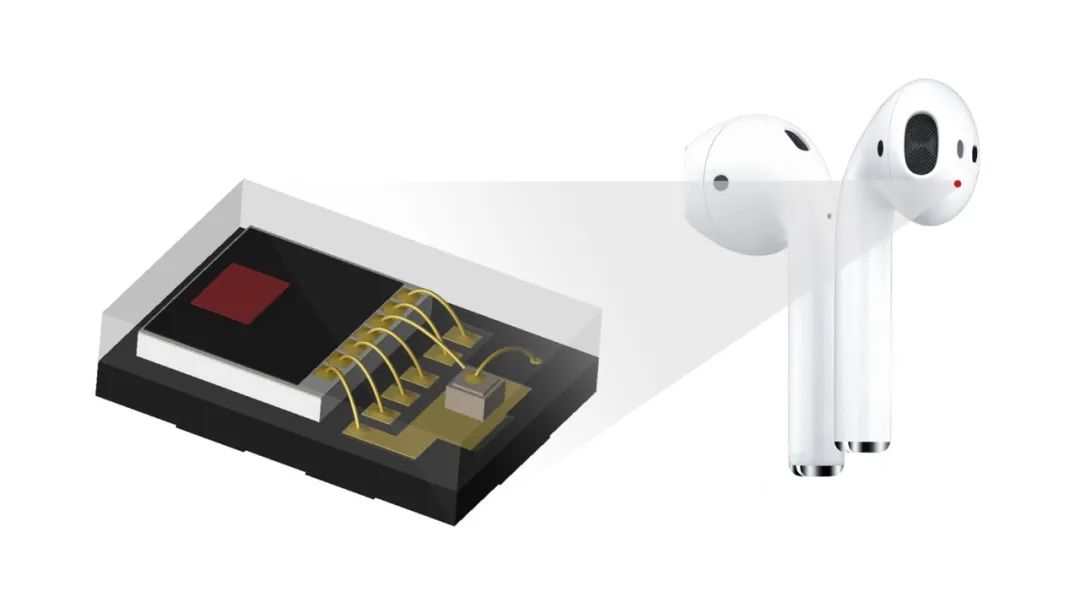
MT3102 application position and packaging diagram
Dedicated miniature package for small wearable devices
Standby power<0.7µA, operating power<10µA
Designed with innovative skin recognition algorithm, recognition rate>98%@3mm
Strong noise and ambient light suppression capabilities, SNR>20@extreme scenarios
Integrates VCSEL with 5mA driving current
Supports 2.5V VCC input
Flexible setting of VCSEL pulse width and count
10~16 bits selectable ADC resolution
Supports 1.2V I/O
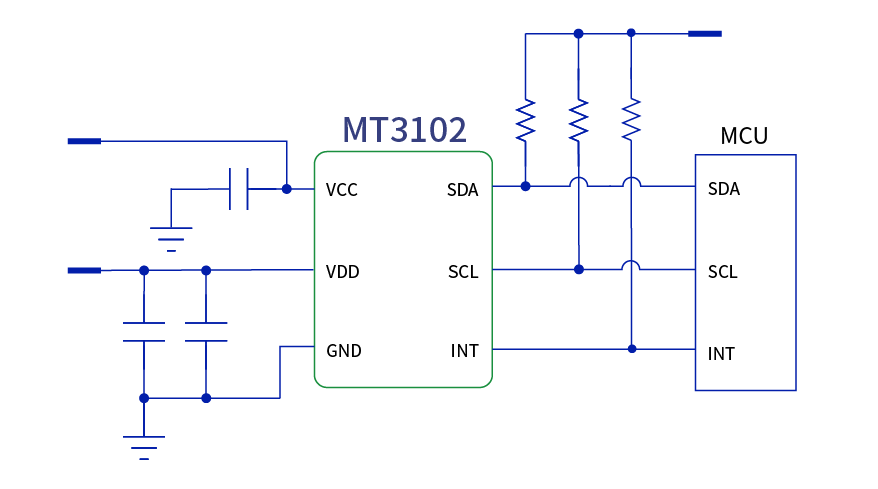
MT3102 typical application circuit
■ Dedicated miniature package: 1.4mm*1.0mm*0.35mm
By integrating infrared light receiver, laser transmitter, I²C interfaces, high accuracy ADC and programmable low noise amplifier into an OLGA6 package with dimensions of 1.4mm*1.0mm*0.35mm, MT3102 is the smallest sensor in the industry, only accounting for 16% of the previous generation product’s volume.
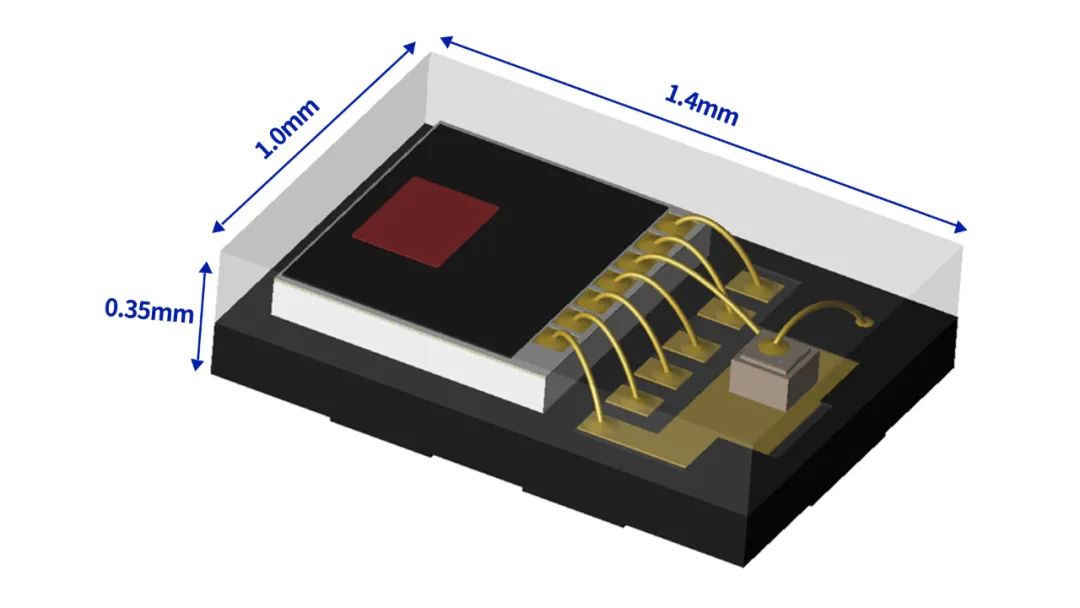
MT3102 has the advantages of design flexibility, high performance and low power dissipation, and it is very suitable for wearable devices such as TWS earphones due to its ultra-simple peripheral circuit and compact design.
■ Ultra-low power: <0.7uA@standby mode
MT3102 is engineered with industry-leading power specifications, including operating/standby/sleep currents, where standby/sleep power<0.7µA, operating current<10µA@100ms (including VCSEL). The power has significantly decreased compared with the previous generation product, MT3101.
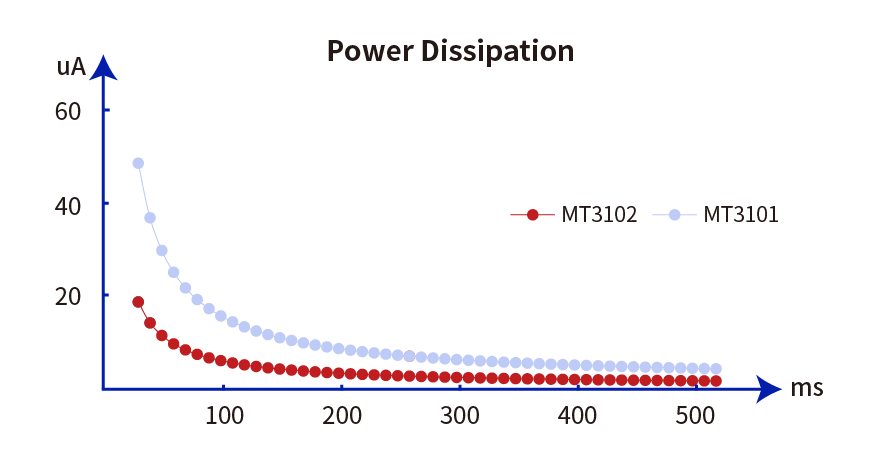
By adopting self-developed skin recognition algorithm, MT3102 is able to recognize more than 98% of the human body within 3mm, or more than 95% of other non-skin tissues such as clothes (white/black), paper (in different colors), tables (wood/metal) or other electronics (with plastic shell), greatly enhancing the wearing detection performance and improving the user experience.
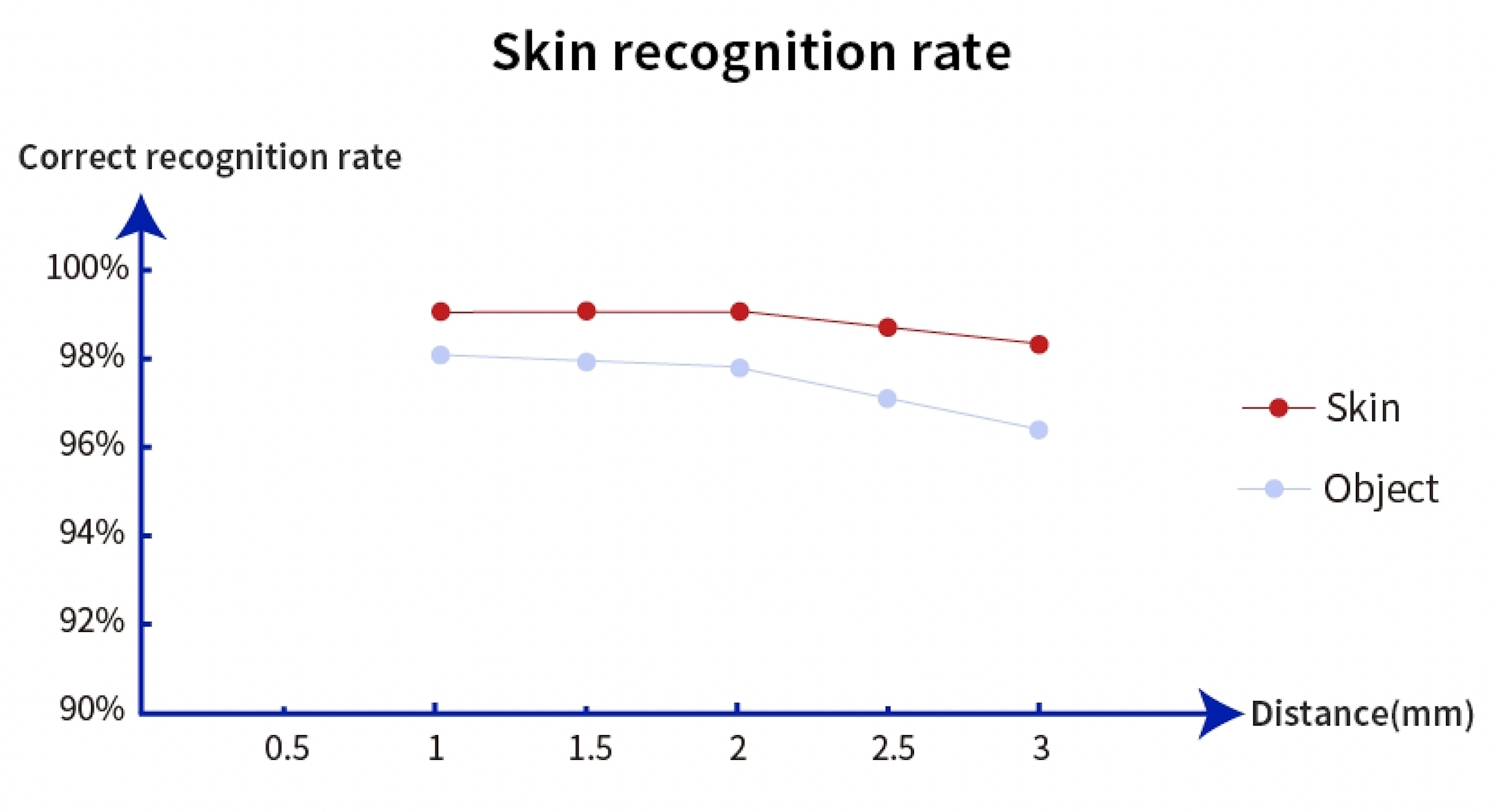
MT3102 is designed with industry-leading SNR, minimum package size and excellent crosstalk suppression capabilities, including <100LSB@16bit package crosstalk and <300LSB@16bit for 0.2mm under glass; integrates OTP and supports factory calibration to eliminate DC error after assembly. Additionally, the chip incorporates 940nm VCSEL widening the Field of View (FOV) to capture object signal changes over a broader range without impacting Crosstalk (CT). This design enables wider proximity sensing capabilities.
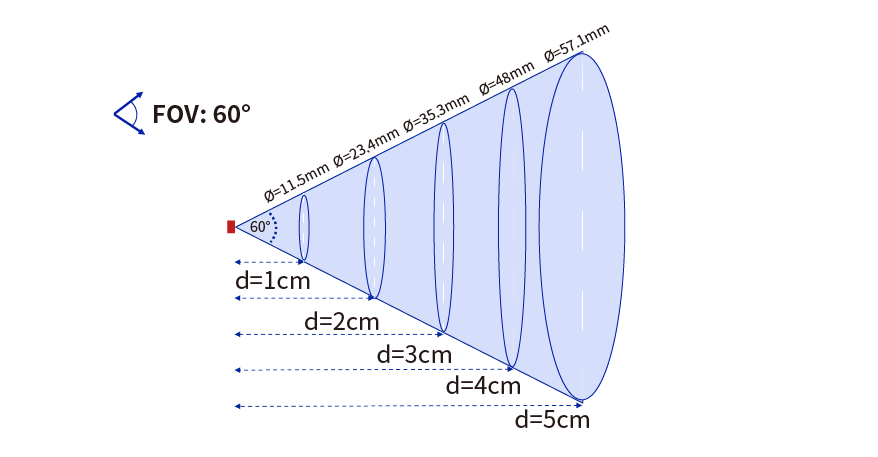
Maxic is committed to the innovation and upgrading of proximity sensors to meet different application requirements.

Key parameter comparison of MT310X
Recommended News
-
2022-09-14
Grand launch | MT5785: 100W ultra-fast wireless charging and 18W reverse transmission
-
2022-08-05
Core leads new era | Maxic participated the Guangzhou International Lighting Exhibition 2022
-
2022-07-04
Maxic launched a fully integrated ultra-low power optical proximity sensor
-
2022-06-24
Maxic launched a high performance wired fast charging 20W~65W overall solution



 Back
Back